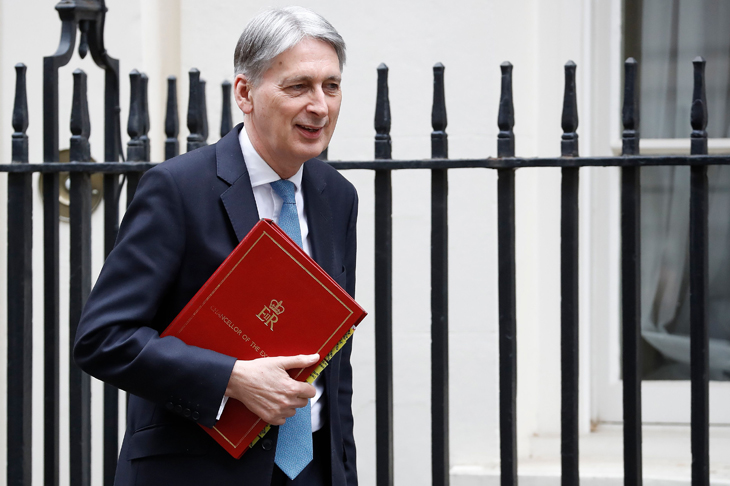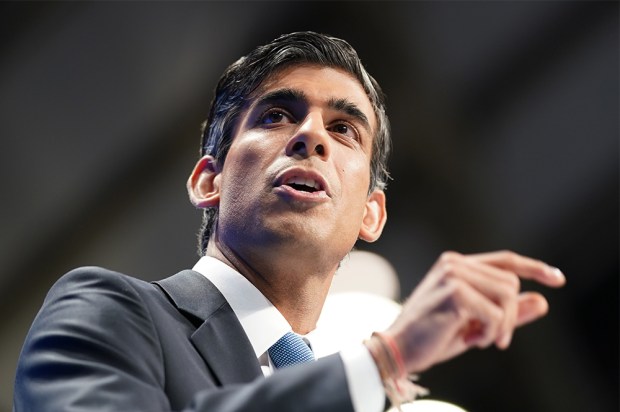In all the madness of the Brexit voting, it’s easy to forget that Philip Hammond revealed a mini-Budget this week. Even the Chancellor started his speech by promising not to talk for long, so MPs could discuss the no-deal Brexit which he has so lamentably failed to prepare for. Ever since the referendum result, he has been expecting economic gloom. It has refused to follow: the figures in his statement seemed to mock his general pessimism.
Disaster has struck Westminster though. Theresa May has lost control of her party and her government and yet her opponent, Jeremy Corbyn, is so weak that he strikes most voters as an even worse option. It’s hard to think of a time when our politics looked more dismal. But the country, overall, seems to be in strikingly good health – which is why so many are still so keen on Brexit.
Never have so many people been in work. Never have household spending levels been higher. Inequality is at roughly a 30-year low and salaries are now rising at the fastest rate in ten years. The deficit is at its lowest level since 2003 because tax revenues are flooding into the Treasury. Politicians might be in the foetal position, terrified of the future. But outside of Westminster, there is plenty of optimism — perhaps the reason why, even now, so many still want to see Brexit happen.
Mr Hammond is right to argue that Brexit has inhibited growth. Business investment has been falling for months, and little wonder. A no-deal Brexit would likely see the pound fall by at least 10 per cent: why would a foreign investor pile into Britain now, when you might be able to get far more for your money in a few weeks time? Similarly, UK companies have been waiting until 29 March to see how the land lies. They may now be waiting far longer. UK economic growth is this year expected to be 1.2 per cent: on a par with that of France and Germany.
The shameful mess that the Conservatives have made of the Brexit process will have a real-world cost. If they allow this indecision to drag on, the cost will accumulate. But as soon as Brexit is resolved, markets can be expected to rally as investors are again able to put a proper value on UK assets. Some large institutional investors, such as Norway’s sovereign wealth fund, are already scooping up British assets, confident that our economy could outperform that of the EU in years to come.
There is, however, no guarantee of that. Brexit is not on its own a magic recipe for economic success. Rather, it is a blank canvas which allows future UK governments to develop economic policies that are currently impossible under EU membership. Given the woeful failure of the Conservative party to provide leadership, or anything resembling it, there is no reason to think Brexit, in and of itself, will make anything better. It depends on the imagination and calibre of those making the decisions.
Hammond lacks this imagination. His ideas tend to be bad ones: usually tax grabs or ideas for massive spending. He was supposed to come up with a solid plan for a no-deal Brexit to give the Prime Minister leverage during negotiations. But instead he sought to subvert this government strategy at every turn. Instead of announcing that Britain stands ready to walk away (which was his job) he painted a picture of ‘higher unemployment, lower wages and higher prices in the shops’ in the event of a no-deal Brexit. He ought to have spoken of a stimulus, low tariffs and radical tax cuts.
In his Spring Statement, he also spoke in open defiance of government strategy suggesting he’d like to enter an alliance with the Labour Party to create some kind of Customs Union. This was, perhaps, the most remarkable part of his speech where he ceased to even pretend that he has been implementing the Brexit strategy as laid out in the party’s manifesto. It was embarrassing enough for Mrs May to be defied by her backbenchers, worse that four Cabinet members defied the whip in the no-deal vote. But to have her Chancellor freelancing in this way – in the middle of a Budget statement – was a clear sign that her control over the party has collapsed. And that one of her biggest errors was to keep Hammond in his job. If the Conservatives are to govern for any length of time, he ought to be replaced as Chancellor at the first opportunity – by someone with a clearer grasp of how to grow economies and spread prosperity.
The obvious opportunity of Brexit is to underline the UK’s status as one of the most welcoming and globally minded countries in Europe. This means lowering barriers to trade, as well as abolishing the cap on foreign students and skilled migrants. Polls show that concern about immigration has fallen sharply since the referendum, in spite of Britain being home to a record number of migrants. But this ought not to be a puzzle. The idea was always to control immigration — not to fight globalisation, but to manage it better.
And in a way that has far greater democratic consent. Over the past few months we have had plenty of understandable warnings about the effects of Brexit on the UK car industry. But it’s clear that the problems are global, with Germany suffering especially. Industry’s complaints that it has been struggling to prepare for an unknown future are very real. The uncertainty is made worse by a Tory party that seems unable to deliver any resolution to Brexit — and equally unable to stop the process drifting into months of uncertainty.
As the agonising endgame of Brexit plays out, it is vital that government looks beyond this drawn-out episode and starts to build confidence by sketching out how it intends to create the right conditions for the UK to thrive. This ought to be the starting point of any Brexit plan. It is clear that Hammond is no more able to devise such a plan than May is able to deliver Brexit. Both embody a leadership crisis that the Conservative party has allowed to fester for far too long.
Got something to add? Join the discussion and comment below.
Get 10 issues for just $10
Subscribe to The Spectator Australia today for the next 10 magazine issues, plus full online access, for just $10.
You might disagree with half of it, but you’ll enjoy reading all of it. Try your first month for free, then just $2 a week for the remainder of your first year.














Comments
Don't miss out
Join the conversation with other Spectator Australia readers. Subscribe to leave a comment.
SUBSCRIBEAlready a subscriber? Log in